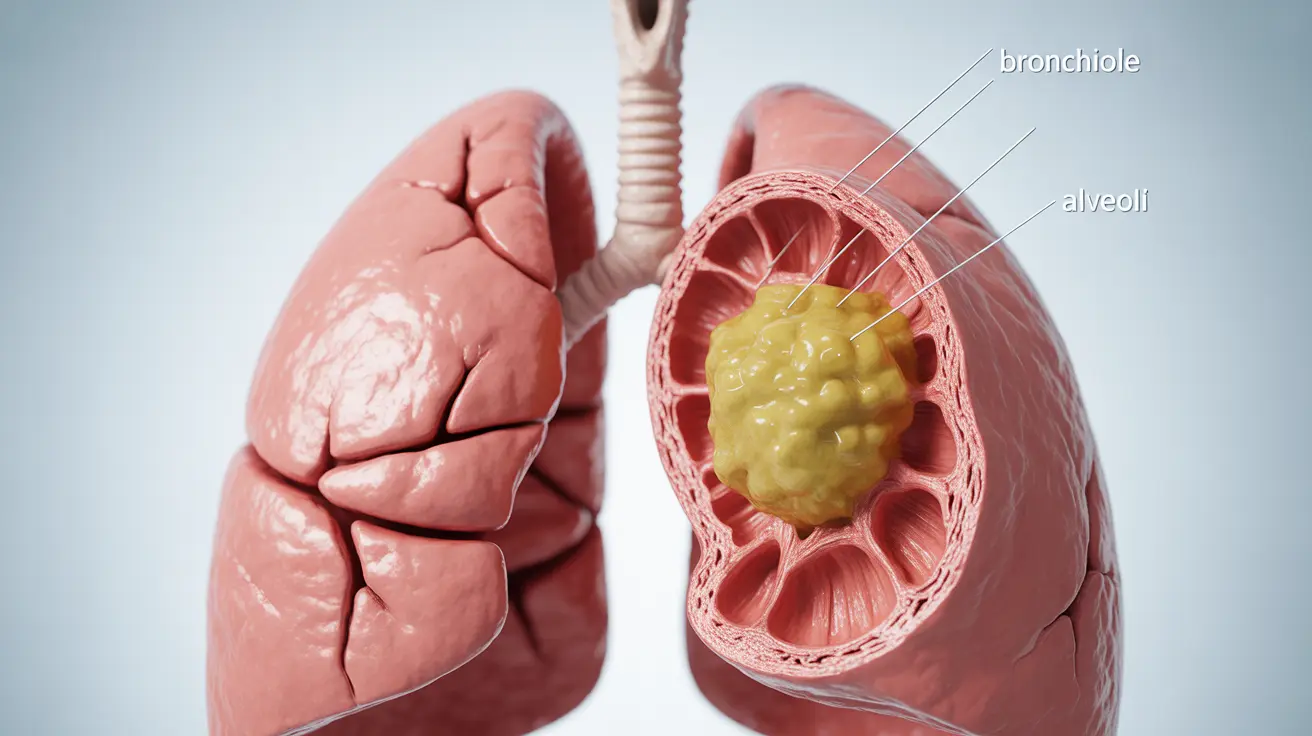A lung abscess is a serious respiratory condition characterized by a localized collection of pus within the lung tissue. This potentially severe infection can develop from various causes and requires prompt medical attention for proper diagnosis and treatment. Understanding the symptoms, causes, and available treatments is crucial for anyone affected by or concerned about this condition.
While lung abscesses can be dangerous if left untreated, modern medical interventions have significantly improved outcomes for patients. This comprehensive guide explores everything you need to know about lung abscesses, from initial symptoms to treatment options and prevention strategies.
Understanding Lung Abscess Formation and Risk Factors
A lung abscess typically develops when bacteria infect the lung tissue, creating a cavity filled with pus. Several factors can increase the risk of developing this condition:
- Poor oral hygiene
- Chronic alcohol use
- Weakened immune system
- Pre-existing lung conditions
- Difficulty swallowing (dysphagia)
Understanding these risk factors is essential for both prevention and early intervention. People with multiple risk factors should be particularly vigilant about respiratory symptoms and maintain regular medical check-ups.
Recognizing the Signs and Symptoms
Early recognition of lung abscess symptoms is crucial for timely treatment. Common symptoms include:
- Persistent cough with foul-smelling sputum
- Fever and night sweats
- Chest pain that worsens with breathing
- Fatigue and weakness
- Unintentional weight loss
- Shortness of breath
The severity and combination of symptoms can vary among individuals, making professional medical evaluation essential for accurate diagnosis.
Diagnostic Approaches and Testing
Healthcare providers use various methods to diagnose a lung abscess:
- Chest X-rays
- CT scans
- Blood tests
- Sputum culture analysis
- Bronchoscopy (in some cases)
These diagnostic tools help determine the location, size, and severity of the abscess, guiding treatment decisions.
Treatment Strategies and Management
Treatment for lung abscess typically involves a comprehensive approach:
Antibiotic Therapy
The cornerstone of treatment is usually a prolonged course of antibiotics, often lasting several weeks. The specific antibiotics chosen depend on the likely causative organisms and local resistance patterns.
Supportive Care
Additional treatment measures may include:
- Postural drainage
- Chest physiotherapy
- Pain management
- Hydration support
- Nutritional support
Surgical Intervention
In some cases, surgical treatment may be necessary, particularly if:
- Antibiotic therapy fails
- The abscess is very large
- Complications develop
- There's significant bleeding
Prevention and Risk Reduction
Several strategies can help reduce the risk of developing a lung abscess:
- Maintaining good oral hygiene
- Addressing alcohol use disorder
- Managing underlying health conditions
- Proper positioning during meals for those with swallowing difficulties
- Regular medical check-ups for high-risk individuals
Frequently Asked Questions
What are the common symptoms of a lung abscess, and how is it diagnosed?
Common symptoms include a persistent cough with foul-smelling sputum, fever, chest pain, and fatigue. Diagnosis typically involves chest imaging (X-rays or CT scans), blood tests, and sputum analysis to confirm the presence and extent of the infection.
How is a lung abscess typically treated, and what antibiotics are used?
Treatment usually involves a long course of antibiotics (4-8 weeks), often combining different types to target various bacteria. Common antibiotics include clindamycin, ampicillin-sulbactam, or metronidazole. Supportive care and sometimes surgical drainage may also be necessary.
Can lung abscesses be prevented, and what lifestyle changes can reduce the risk?
Prevention strategies include maintaining good oral hygiene, avoiding excessive alcohol consumption, treating underlying medical conditions, and proper positioning during eating for those with swallowing difficulties. Regular dental check-ups and quitting smoking can also help reduce risk.
What are the main causes of a lung abscess, and how do aspiration and alcohol use disorder contribute to its development?
Lung abscesses often develop from aspiration of oral bacteria, particularly in those with alcohol use disorder who may have impaired consciousness and swallowing reflexes. Other causes include pneumonia, bronchial obstruction, and systemic infections.
What complications can arise from a lung abscess if it is not properly treated, and how can they be managed?
Untreated lung abscesses can lead to serious complications including empyema (pus in the pleural space), severe bleeding, spread of infection to other organs, and respiratory failure. Management involves aggressive antibiotic therapy, possible surgical intervention, and intensive supportive care.




